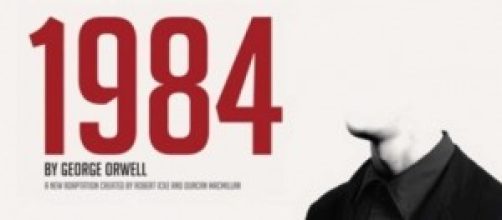George Orwell’s novel 1984is one of the finest books of the twenty century. Belonging to the dystopiangenre, it follows the struggle of our protagonist Winston attempting to rebel againsta terrifying totalitarian system. With Winston's complete submission to the forces and ideals of the state, theending is as powerful as it is hopeless.
What Orwell left us is awarning against and a prediction of the inevitable consequences oftotalitarianism. To what extent our world uncannily resembles the societydescribed in 1984 is an interestingquestion I do not dare answer.
Surely, this masterpiece remains as relevanttoday as ever: many phrases, such as “Big Brother”, “doublethink”, “newspeak”,and the nightmarish “room 101”, have entrenched in our language and culture.
Given its sharp style and overall complexity, this novelis incredibly difficult to adapt – many attempts have been made, and most ofthem were nowhere near as good as the book. Orwell’s writing has a unique toneand style that both movies and plays struggle to capture.
Yet, the adaptation by RobertIcke and Duncan Macmillan for Headlong is surely extraordinary. This 1984presents a very fascinating innovation and twist: all events are not set in1984 but around 2050, when a group of historians discover and investigateWinston’s diary.
The play is thus based on a series of uncanny and terrifyingflashbacks, which well mirror the plot in the book and they also are thetheatrical equivalent of doublethink. The logic of doublethink relies onconstant contradiction: simply, it means to simultaneously accept two oppositebeliefs as correct. If Orwell wonderfully manages to make the reader asconfused as Winston when being re- educated by O’Brien, so the theatricalpresentation does. Icke and Macmillan play mind games with their audience who, togetherwith the group of historians, is challenged to decipher Winston’s tale: is itmere fiction? Or truly terrifying historical facts?
Whilst the play goes on, viewers find themselvesmore and more involved in such disturbing, provocative and strange yet very familiarsociety.
The visual and sound effects, which reach their climax with the masterfulscene in room 101, surely contribute to recreate Orwell’s dystopian vision ofthe world.
The adaptation is outstanding, perturbingand as such perhaps not for everyone. Above all, the main difference with thenovel lies in the time setting: 1984 turns into 2050. Yet, the play perfectly capturesthe true essence of the book, and the constant swift transitions between past,present and future leave all audience speechless, almost imbibed in thisfrightening loop. “Whose past, future,if not present are we seeing?”: this the final or rather universal question,and this is exactly what I worriedly asked myself while leaving the theatre.

